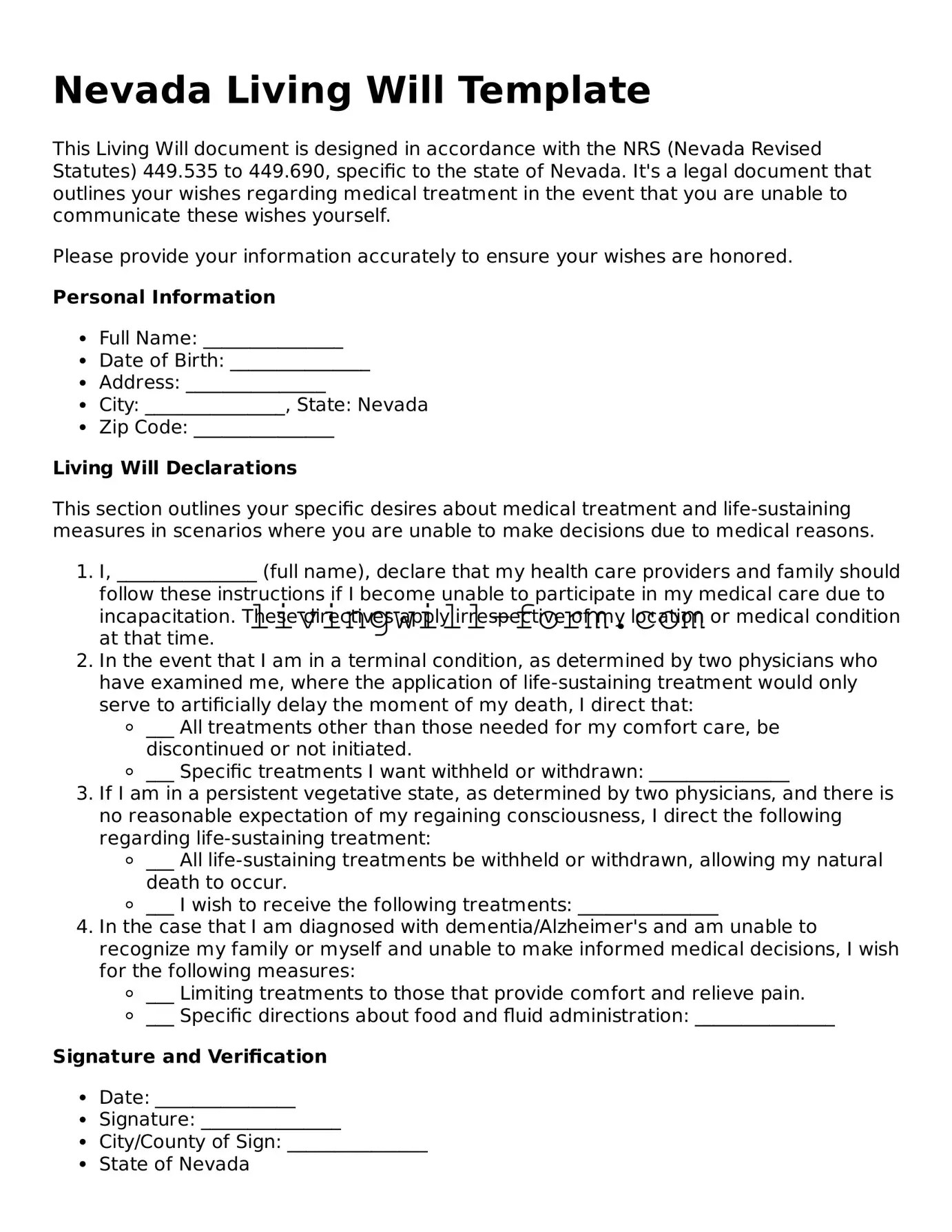A living will form, crafted to express a person's wishes regarding medical treatment in circumstances where they are unable to communicate, shares similarities with several other documents, each tailored for varying aspects of personal and health planning. The most directly related document is the Advance Directive. This broader term encompasses living wills and health care proxies, providing detailed instructions on healthcare preferences and designating an individual to make decisions on behalf of the person if they are incapacitated.
Similarly, the Durable Power of Attorney for Health Care is closely related, specifically appointing a healthcare agent to make medical decisions when the principal is unable. While a living will expresses wishes concerning life-sustaining treatment, a durable power of attorney for health care empowers an agent to make a range of health care decisions based on the patient's condition, not limited to end-of-life situations.
The DNR (Do Not Resuscitate) Order is another document with a specific focus, instructing medical personnel not to perform CPR if breathing stops or if the heart stops beating. Unlike a living will, which could encompass various treatments and scenarios, a DNR is a clear and narrowly defined declaration pertaining only to resuscitation efforts.
A Medical Orders for Scope of Treatment (MOST) or a similar POLST (Physician Orders for Life-Sustaining Treatment) form, typically signed by both the patient and their physician, outlines specific medical treatments the patient wishes to receive or avoid, based on their current health condition. This document is more immediate and practical in its application compared to the broader scope and more hypothetical scenarios often covered in a living will.
The Durable Power of Attorney is a legal instrument authorizing someone to act on a person's behalf in various capacities, not limited to health care decisions. This can include managing financial affairs, property, or other personal matters when they're incapacitated. This document's scope can be both broader and less specifically focused on health care compared to a living will.
A Last Will and Testament is fundamentally focused on the distribution of a person’s assets and care of dependents after their death. While it doesn’t address the individual’s preferences for healthcare when incapacitated, it shares the aspect of planning for scenarios when the individual is unable to make decisions or express their wishes.
The Financial Power of Attorney designates an agent to handle financial decisions on behalf of the principal. Though its focus is distinctly on financial matters, not healthcare, it parallels the living will's strategy of designating another to act based on the individual's inability to manage their affairs.
Last, the Health Insurance Portability and Accountability Act (HIPAA) Authorization Form allows for the sharing of an individual’s health information with specified individuals or entities. While primarily focused on privacy and the flow of healthcare information, it intersects with living will considerations by ensuring that designated decision-makers have access to the necessary medical information to make informed decisions in line with the patient's wishes.

